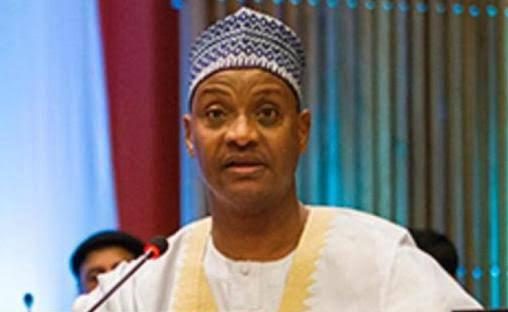Ultimately, 2027 must not be about North versus South, or Fulani versus Ijaw or Igbo, or APC versus PDP versus ADC. It must be about results. It must be a test of leadership, competence, and empathy.”— Dakuku Peterside “2027: Battle for the Soul of the North”
It really doesn’t take too much to be objective if we are inclined to be so. Subjectiveness is a state of mind conditioned by inherited or deliberately cultivated traits like hatred, bias, condescension, and prejudice, which lead individuals to approach issues from preconceived notions and fixed positions. Many writers who profess to write about the North approach the region with such subjective and predisposed mindsets, thereby rendering their thoughts and intentions at variance with the object of their inquiry or intellectual exertion.
A quite different and welcome attitude was shown recently by Mr. Dakuku Peterside, whose article “2027: Battle for the Soul of the North” made compelling reading and marked a remarkable departure from the set-piece negative portrayals of the region that we have come to expect from writers from the Southern parts of the country. Peterside’s thoughtful and mature writing conveys both the urgency and the inevitability of facing squarely the travails of the North and its relationship with the central government led today by President Bola Ahmed Tinubu.
What makes Peterside’s intervention exceptional is his grasp of the North’s historical evolution and political psychology. He does not treat the region as a monolithic bloc defined by stereotypes but as a complex social organism shaped by geography, religion, demography, and leadership traditions. In doing so, he affirms that the North is neither a burden nor a liability to Nigeria, but an indispensable stabilising factor in the national equation. This level of nuanced understanding is rare among Southern analysts whose discourses often oscillate between condemnation and suspicion whenever the North is mentioned.
Peterside’s analysis stands out because it seeks comprehension rather than confrontation. His approach is grounded on rational observation, not emotional reaction, and is driven by the conviction that national progress must be rooted in fairness, equity, mutual respect, and an appreciation of Nigeria’s plural character. He does not succumb to the facile temptation of seeing the “Northern Question” as a political aberration but rather as a legitimate national concern deserving of empathy and engagement.
The North, in all fairness, has carried a disproportionate share of Nigeria’s socio-economic and security burdens in recent years. From insurgency and banditry to poverty and educational backwardness, the region bears wounds that must be collectively healed. Peterside reminds Nigerians that the stability of the North is synonymous with the stability of Nigeria. His logic is impeccable: no nation can prosper when one of its pillars is weakened or vilified, especially when that pillar forms more than 75 per cent of the nation’s landmass and majority of its voting population.
His article further underscores the necessity for a new national compact — a rational understanding among regions that transcends politics of resentment. The perennial fixation on the North as the cause of Nigeria’s problems must give way to a broader national introspection. Every region has its share of responsibility for the country’s present predicament; every region must also share in the duty of reconstruction. What makes Peterside’s tone refreshing is that he avoids the sanctimonious language of accusation and instead adopts the balanced voice of persuasion.
This is the hallmark of intellectual maturity. His essay evokes the spirit of dialogue and not diatribe, and calls for a collective rediscovery of Nigeria’s moral and political centre. In doing so, he speaks not as a Southern commentator but as a patriot intent on national renewal.
If more writers and commentators would emulate Peterside’s example, Nigeria’s public discourse would be less acrimonious and more edifying. The media space would become a ground for the sowing of understanding rather than hostility. For too long, we have allowed the rhetoric of regional antagonism to dictate our political conversations. We need instead the rhetoric of responsibility, fairness, and national solidarity. Dakuku Peterside has taken the lead as evidenced by his perceptive understanding of the “Northern Question”.
It is important also to recognise that such balanced perspectives are not acts of generosity but of patriotism. They strengthen democracy, foster coexistence, and preserve the unity of purpose that Nigeria needs to survive the coming decades.
Rational analysis, as Peterside demonstrates, is not about defending the North or attacking the South, but it is about defending reason against the forces of division. In acknowledging his work, we celebrate not just an individual writer but the spirit of national consciousness that transcends primordial sentiments.
We affirm that the destiny of Nigeria will only be safeguarded when rationality triumphs over rancour and when justice tempers ambition. The 2027 elections, which formed the backdrop of Peterside’s article, will test our collective capacity to reason above emotion. They will reveal whether Nigeria has matured enough to see beyond ethnicity and sectional prejudice. If his essay serves as a reminder of that higher calling — to treat every region with fairness and every citizen with respect — then it deserves our attention and commendation. In the final analysis, Dakuku Peterside’s intervention marks a turning point in national discourse. It exemplifies how thoughtful reflection, expressed in temperate language, can illuminate rather than inflame.
It is a lesson in political civility and a demonstration that rationality, when applied to the Nigerian condition, remains the surest path to unity and progress.
The post Dakuku Peterside and the rational analysis of national politics (1), by Usman Sarki appeared first on Vanguard News.

